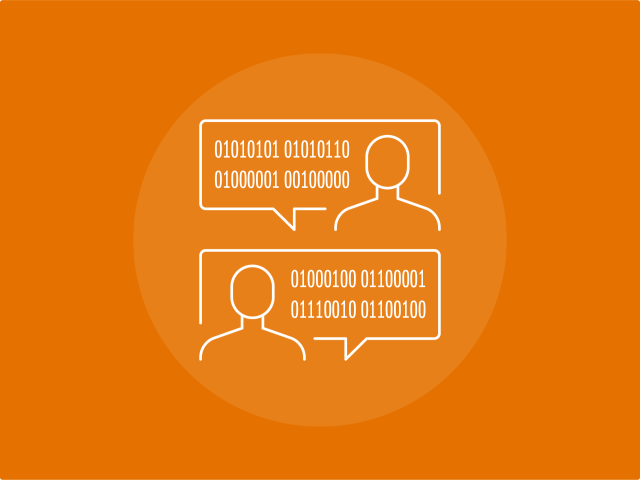

 Article
Article

 Word-of-mouth is a powerful, organic form of marketing. But what about word-of-machine? Research from Professor Luca Cian shows that customers trust artificial-intelligence recommendations when a product or service is practical but resist when they’re pursuing a product or service for pleasure. What can companies do with this information?
Word-of-mouth is a powerful, organic form of marketing. But what about word-of-machine? Research from Professor Luca Cian shows that customers trust artificial-intelligence recommendations when a product or service is practical but resist when they’re pursuing a product or service for pleasure. What can companies do with this information?

Insights from
Written by
All marketers know how powerful word-of-mouth is. But in an era in which recommendations are made increasingly via predictive algorithm, just how valuable is “word of machine”? When are algorithms likely to be effective in persuading us to buy or try something?
Darden Professor Luca Cian and colleague Chiara Longoni of Boston University explore these questions in “Artificial Intelligence in Utilitarian vs. Hedonic Contexts: The ‘Word-of-Machine’ Effect,” which earned the American Marketing Association’s Research in Practice Award.
Cian and Longoni show that customers tend to trust artificial intelligence (AI) recommendations when the product is utilitarian — but resist it when they’re choosing a product for pleasure or life experience. For example, people are more likely to trust an algorithm’s choice for a snow shovel (utilitarian) and less likely its pick for a fashionable scarf (pleasure).
The researchers also show that people become more receptive to an algorithm’s suggestions when they are cued think in practical terms or when they’re asked to challenge their assumptions about what algorithms can or can’t do. Such insights are important, as companies increasingly rely on AI for faster, more accurate and cost-effective marketing strategies.
“Our findings provide useful insights for companies debating if and how to effectively automate their recommendation systems,” Cian says, noting that many companies may use a hybrid approach, using both human sales associates and AI tools, like chat bots or apps. And many might consider doing it more strategically; for example, Cian suggests hospitality company TripAdvisor could emphasize AI-based recommendations for business trips and downplay them when customers are searching for leisure travel.
A decade ago, Amazon began recommending books based on purchase histories within its database. “People who bought The Great Gatsby also bought ….”
These days, almost every moment online is AI influenced. At each page refresh, Netflix crafts users’ homepages with tailored suggestions for movies and series. Nordstrom, Sephora and other retailers continually offer pop-up suggestions of similar-style products or complementary pieces to consider while a shopper browses. But for all the efforts retailers make, past literature shows general resistance to “word of machine.”
“Despite the superior accuracy of algorithmic models, people tend to eschew them,” the researchers write. People believe that AI and algorithms are robotic — though logical, not flexible or nuanced enough for the complexities of human experience and sensations.
Consumers believe that fellow humans are better able to judge human pleasure and emotions. But just as “humans are not necessarily less competent than AI at assessing and evaluating utilitarian attributes … AI is not necessarily less competent than humans at assessing and evaluating hedonic attributes,” the researchers note. “Indeed, AI selects flower arrangements for 1-800-Flowers and creates new flavors for food companies such as McCormick, Starbucks and Coca-Cola.”
In reality, most products are not just utilitarian or hedonic. Even a doormat is both: It has aesthetic appeal outside a front door and functional value in catching dirt.
In experiments, Cian and Longoni used written cues to manipulate how participants evaluated a product, asking them to weigh it for its functional use or for pleasurable possibilities. The results were dramatic.
In one study, participants were cued to think of a real estate investment. When they were primed to consider potential properties in utilitarian terms, they chose a property noted as selected by a realtor’s “proprietary algorithm” 60 percent of the time. What’s more, when they considered properties in terms of how fun it might be to live there, they opted for a human realtor’s suggestion 76 percent of the time.
The researchers found that human-AI partnerships — an “augmented intelligence” model in which “AI supports rather than replaces a human” — may be the best of both worlds.
In a study, participants were informed that chocolate bars were narrowed down to subset of options by AI, but then a human chocolatier made the final call about which bar to recommend. Study participants showed great receptivity to a model in which AI “enhances and amplifies human intelligence instead of replacing it,” Cian says. In fact, the study found augmented intelligence bolstered “AI to the level of humans for [trust in] hedonic decision-making,” Cian and Longoni note.
And when it comes to experiential decision-making, “These results are important for practitioners managing relatively more hedonic products or services,” the paper notes. “Practitioners could leverage our results and utilize AI systems to generate an initial recommendation on which a human then ‘signs off.’”
Luca Cian co-authored “Artificial Intelligence in Utilitarian vs. Hedonic Contexts: The ‘Word-of-Machine’ Effect,” which appeared in the Journal of Marketing, with Chiara Longoni of Boston University Questrom School of Business.
Cian’s area of marketing expertise encompasses consumer behavior and psychology, specifically as related to sensory marketing and social cognition.
His work has appeared in leading academic journals Journal of Marketing Research, Journal of Consumer Psychology and Journal of Consumer Research, and has been discussed on NPR and in other mainstream channels including The Huffington Post, New York magazine, The Atlantic and Fast Company’s Co.Design.
Before coming to Darden, Cian was a postdoctoral scholar at the University of Michigan Ross School of Business, while also serving as a marketing consultant for the Italian Environmental Protection Agency and working at the Sensory Marketing Laboratory and at the Social Cognition Laboratory.
M.S., University of Trieste; Ph.D., University of Verona (visiting at University of Michigan); Postdoc, University of Michigan